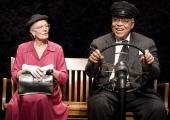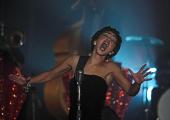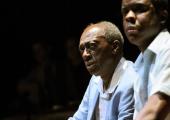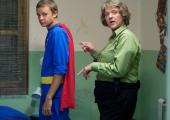The Girl in the Yellow Dress, Theatre 503
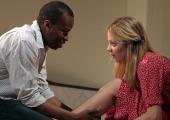
Craig Higginson’s new two-hander is a sizzling and intelligent experience
Ethnic tensions in France have been in the news this week, with the siege of the gunman Mohammed Merah, so award-winning South-African penman Craig Higginson’s new play seems really timely. First seen in this country at the Salisbury Playhouse, and opening last night at Theatre 503 in south London, this story about the relationship between a French-Congolese student and an English teacher during a hot Parisian summer is full of emotion, and ideas.


